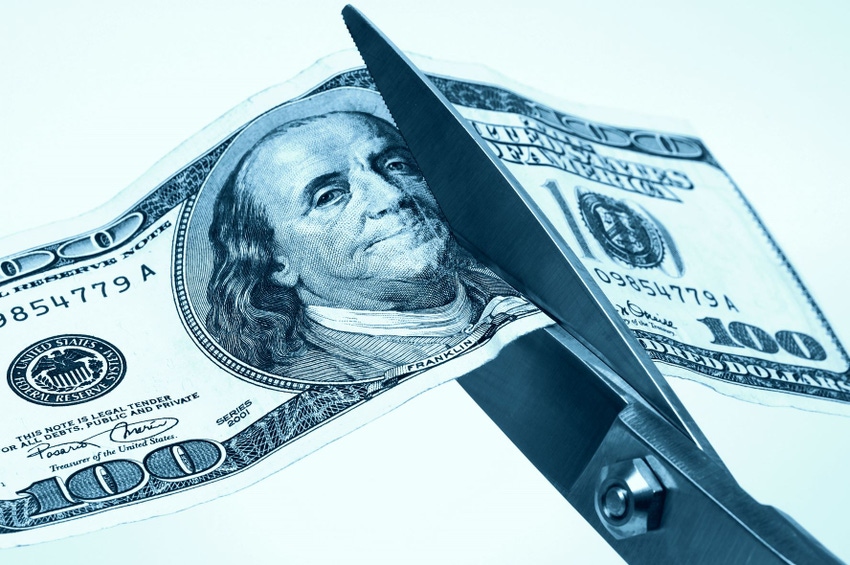RSC proposes deep budget cuts in farm programs
Legislative Watch: Call for eliminating Agricultural Trade Promotion and Facilitation Program; McKalip's hearing; SMHPP begins; Beagle Brigade support.

The Republican Study Committee has released the RSC Blueprint to Save America budget which proposes deep cuts in farm programs. Nearly 75% of the House Republicans are RSC members.
The budget proposals for agriculture include:
Eliminating the Price Loss Coverage and Agriculture Risk Coverage programs.
Phasing out the sugar program.
Eliminating the milk program.
Reform the Federal Crop Insurance Program by reducing the subsidies the government covers from 60% to 30%. It would also cap the overall amount of subsidies a single producer could receive.
Prohibit new enrollments in the Conservation Reserve Program and the Conservation Stewardship Program.
Eliminate the Agricultural Trade Promotion and Facilitation Program which includes the Foreign Market Development Program and the Market Access Program.
Repeal the Specialty Crop Block Grant Program.
The budget proposes rolling back regulations, eliminating the estate tax and extending the expiring tax cuts enacted in 2017.
Senate finance holds hearing on McKalip's nomination as chief agriculture egotiator
The Senate Finance Committee held a hearing on Doug McKalip's nomination to be the USTR Chief Agricultural Negotiator.
McKalip was questioned by Senators about why the administration is not seeking new free trade agreements to give greater market access for U.S. products, especially agriculture, as our international competitors continue to enter new trade agreements.
Earlier, a group of 21 Republican Senators sent a letter to McKalip urging him to "become an advocate … for the prioritization and inclusion of market access commitments as part of U.S. trade discussions. Our farmers and ranchers are facing uncertain times due to the immense pressure of an exponential increase in input costs. Greater access to international markets for products we export would help alleviate some of that pressure."
McKalip's nomination has strong support from the agricultural community. Earlier, nearly 100 agricultural organizations and companies sent a letter to the Senate Finance Committee in support of his nomination.
The letter said that McKalip has the "experience and expertise to reduce foreign trade barriers, secure greater market access for U.S. products and ensure enforcement of clear and fair rules with our trade partners so U.S. food and agriculture workers and our industry sectors may fairly compete in the global economy."
USDA begins Spot Market Hog Payments
USDA announced it was increasing the amount of funding available for the "Spot Market Hog Pandemic Program". It now expects to issue approximately $62.8 million in pandemic assistance payments to hog producers starting this week.
USDA in a press release said SMHPP assists eligible producers who sold hogs through a spot market sale from April 16, 2020, through Sept. 1, 2020. USDA's Farm Service Agency accepted SMHPP applications through April 29, 2022. Payments will be calculated by multiplying the number of head of eligible hogs, not to exceed 10,000 head, by the payment rate of $54 per head.
National Pork Producers Council President Terry Wolters said, "We appreciate FSA's commitment to providing assistance to those pork producers hit hard by the economic disruptions caused by the pandemic. Producers forced into spot market hog sales are still challenged by the market disruptions of COVID-19, and these funds will contribute to the ongoing recovery of the U.S. pork industry."
Support the Beagle Brigade
A coalition of agricultural organizations are calling on Congress to pass the "Beagle Brigade Act of 2022" which permanently authorize the National Detector Dog Training Center in Newman, Georgia, which trains canines to provide inspections to prevent foreign animal diseases, invasive species and pests from entering the country at U.S. ports of entry. The legislation would authorize the Beagle Brigade and allow for federal appropriations. Currently, the program is funded through user fees which at times is not consistent.
The organizations said in a letter to Congressional leaders, "The $1 trillion U.S. agriculture sector is a key component of the American economy and is fundamental to our national security. The introduction of foreign animal and plant pests and diseases costs the American economy tens of billions of dollars annually. The Agriculture Canine Teams of the Bureau of Customs and Border Protection perform critically important agricultural inspections at the nation's ports of entry. These teams play a vital role in trade and travel safety, and work every day to prevent the introduction of harmful foreign animal and plant diseases and pests into the U.S."
The Beagle Brigade Act introduced by Senators Ralph Warnock (D-GA) and Joni Ernst (R-IA) would:
Explicitly authorize the National Detector Dog Training Center
Outline the center's duties, including:
Training dogs for the purpose of safeguarding domestic agriculture
Training human handlers to successfully select and train dogs
Collaborating with other federal agencies, including U.S. Customs and Border Protection
Collaborating with external stakeholders, including agriculture stakeholders
Ensuring the health and wellbeing of all dogs in the center's care
Providing adoption opportunities for all dogs
Authorize appropriations (such sums as necessary) to support the center's operations in addition to funding generated from user fees
Require a report to Congress on the center's operations and recommendations to strengthen capacity to better protect domestic agriculture.
Organizations signing the letter include the American Farm Bureau Federation, American Horse Council, American Seed Trade Association, American Sheep Industry Association, American Veterinary Medical Association, Animal Health Institute, National Cattlemen's Beef Association, National Farmers Union, National Pork Producers Council, National Turkey Federation, North American Meat Institute, Pet Food Institute and U.S. Cattlemen's Association.
Source: P. Scott Shearer, who is solely responsible for the information provided, and wholly owns the information. Informa Business Media and all its subsidiaries are not responsible for any of the content contained in this information asset. The opinions of this writer are not necessarily those of Farm Progress/Informa.
About the Author(s)
You May Also Like



